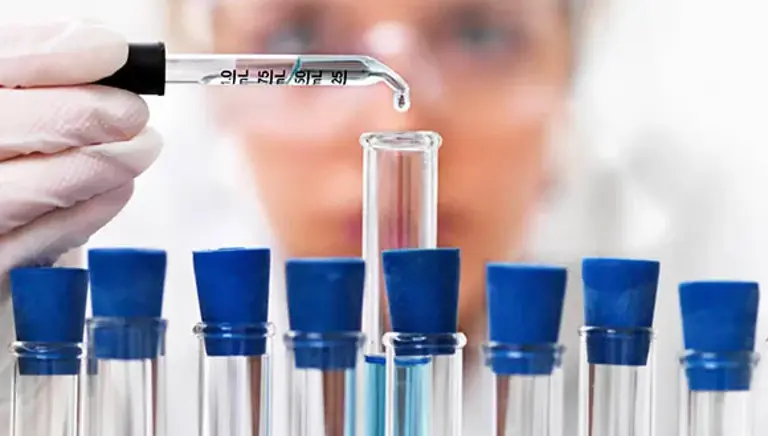Leading global pharma firms exit UK drug pricing agreement
AbbVie and Eli Lilly and Company, two of the world’s largest pharmaceutical companies, have sent a warning signal to the UK government by leaving the voluntary medicines pricing agreement in protest over increasingly punitive revenue clawbacks.
AbbVie and Lilly have left the UK’s Voluntary Scheme for Branded Medicines Pricing and Access (VPAS), a long-standing agreement between government and industry with roots going back to the foundation of the NHS.
As a result, the companies will come under the alternative Statutory Scheme for Branded Medicines which is imposed by Government through law, not via negotiation, demonstrating the depth of feeling that the current Voluntary Scheme is damaging the UK life sciences industry. The Statutory Scheme has historically carried an even higher repayment rate than the Voluntary Scheme, with a further increase currently under public consultation.
Companies are increasingly arguing that it is no longer possible to justify the UK’s ‘voluntary scheme’ to global boardrooms and investors. Repayment rates in 2023 have surged to 26.5% of revenue as a consequence of failings in the existing scheme’s design, which places the UK completely out of step with its global competitors and outside historical norms.
The news follows a wider industry warning in December when the government announced manufacturers of branded medicines within the Voluntary Scheme will be required to return almost £3.3bn in sales revenue to the government (26.5% of sales), up from around £0.6bn in 2021 and £1.8bn in 2022 [1].
The industry is clear that if the UK cannot address rapidly escalating rates in future years and return repayment rates to historical norms, the government’s Life Sciences Vision will be unachievable and the UK will increasingly see investment, jobs and research partnerships going to other more supportive markets in the US, Europe and Asia.
The UK is already losing ground in terms of its share of innovative medical research with the number of industry clinical trials initiated in the UK per year felling by 41% between 2017 and 2021, with cancer trials falling by the same margin. Since 2010, the UK has fallen from 4th to 98th place in overall trade balance in pharmaceuticals. At the same time, other similar countries, including Ireland, France and Germany, have managed to boost manufacturing productivity, output and exports.
The existing VPAS scheme is the latest in a long line of such agreements that are intended to help manage the affordability of medicines while supporting the Life Sciences sector so that it can continue to deliver UK patients access to medicine innovations now and in the future. In the past, it has been a powerful tool in supporting the dual aims of improving patient health outcomes and supporting economic growth, but in recent years it has increasingly failed to meet either of these two key objectives.
Laura Steele, President and General Manager, Northern Europe, Eli Lilly and Company, said: “Getting the VPAS right is a win for patients, taxpayers and industry, so government must act urgently to rescue our partnership. There is too big a gap between the commitments of the government’s vision for life sciences, and the reality for business. The current scheme has harmed innovation, with costs spiralling out of control, and the UK falling behind other major countries to be left as a global outlier. We simply cannot stay signed up to a scheme which has such a punishing impact on innovation, which is why we want to see action on a new settlement that allows life sciences to thrive in the UK now and over the long-term, to boost investment in the UK and ensure patients here can benefit rapidly from cutting-edge clinical trials and medicines.”
Todd Manning, General Manager UK, AbbVie, said: “AbbVie has always been a member of the Voluntary Scheme and leaving is not a decision we take lightly but Levy rates close to 27% of revenue are not seen in any comparable country and they have a demonstrable impact on our ability to operate sustainably in the UK. Without a positive signal that the future scheme will deliver more reasonable rates, I fear it will be increasingly difficult to advocate for the UK and what I believe is our shared ambition of securing investment, jobs and, ultimately, delivering improved health outcomes for UK patients.”
Richard Torbett, Chief Executive at the ABPI said: “Our industry remains committed to the principle of a collaborative voluntary agreement with the government that brings important aspects of UK medicines policy together with the UK’s wider economic ambitions for the sector. We have already seen the UK lose almost half of its global share of R&D over the last decade. For this trend to be reversed, we must develop a more internationally competitive scheme with the government that can genuinely support the life sciences vision.”
The current Voluntary Scheme is due to end in December 2023. The ABPI is seeking early talks with the government to set out a completely new future settlement which captures the huge potential of the life sciences sector to drive improvements in the health and wealth of everyone in the UK. The industry intends to publish its proposals for what this could look like and deliver for the UK in the coming months.
The UK already spends considerably less on medicines per person than similar countries. For every £100 in GDP, the UK spends 81p on pharmaceuticals. This compares to £1.94 spent by Germany and £1.84 spent by Japan. The UK also spends a lower proportion of its total health budget on medicines than similar countries (UK 9%, Australia 14%, France 15%, Germany 17%) [2].
The 2019 VPAS deal caps the growth of NHS branded medicine spending at a nominal rate of 2% per year, with the industry returning any spending beyond the cap. This means that despite demand for branded medicines rising sharply, driven by clinical decisions and patient need, the money spent on them has declined by 14% in real terms over the last decade.
Due to increased UK health needs, including to address the backlog following the pandemic, NHS demand and use of new medicines to treat patients have grown much faster than industry pre-pandemic projections – driving up the repayment rates far beyond sustainable levels.
- Voluntary Scheme
- Pricing
- Statutory Scheme
- Voluntary Scheme News
Last modified: 20 September 2023
Last reviewed: 20 September 2023

